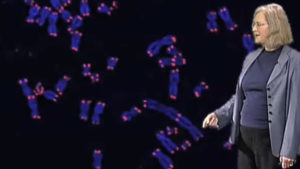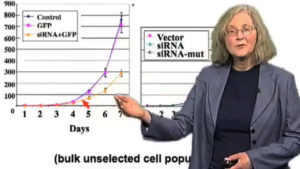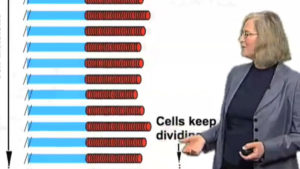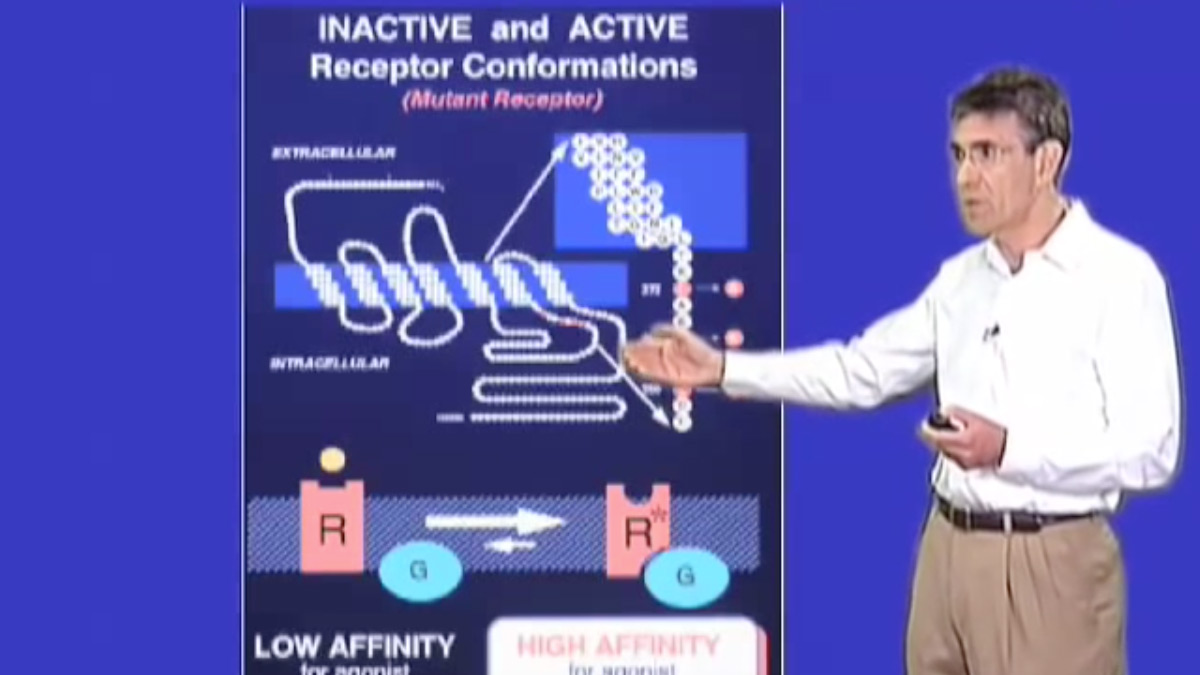Talk Overview
Telomerase, a specialized ribonucleprotein reverse transcriptase, is important for long-term eukaryotic cell proliferation and genomic stability, because it replenishes the DNA at telomeres. Thus, depending on cell type telomerase partially or completely (depending on cell type) counteracts the progressive shortening of telomeres that otherwise occurs. Telomerase is highly active in many human malignancies, and a potential target for anti-cancer approaches. Furthermore, recent collaborative studies have shown the relationship between accelerated telomere shortening and life stress and that low telomerase levels are associated with six prominent risk factors for cardiovascular disease.
Speaker Bio
Elizabeth Blackburn

Dr. Blackburn is a leader in the area of telomere and telomerase research. She discovered the molecular nature of telomeres-the ends of eukaryotic chromosomes that serve as protective caps essential for preserving the genetic information – and discovered the enzyme telomerase, which replenishes telomeres. Blackburn is currently a Professor in the Department of Biochemistry and… Continue Reading











Leonardo Cisneros says
Hey guys, I am currently working on my thesis and as a part of the written work I want to explain the end-to-end fusion of the chromosomes. In the first talk: the roles of telomeres and telomerase, elizabeth explained this phenomenon in an image (min. 8:15) and I would like to know the source where you took it so I can also use it.
Thnks for your attention!
Naved Ahmad says
Hi Love you mam and congratulations
I want to study on cancer genetic
Telomerase and telomeres role in agein
Plzz guide me
Hadis says
It was great
Thanks for all of informations that u shared with us